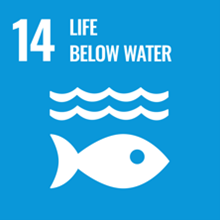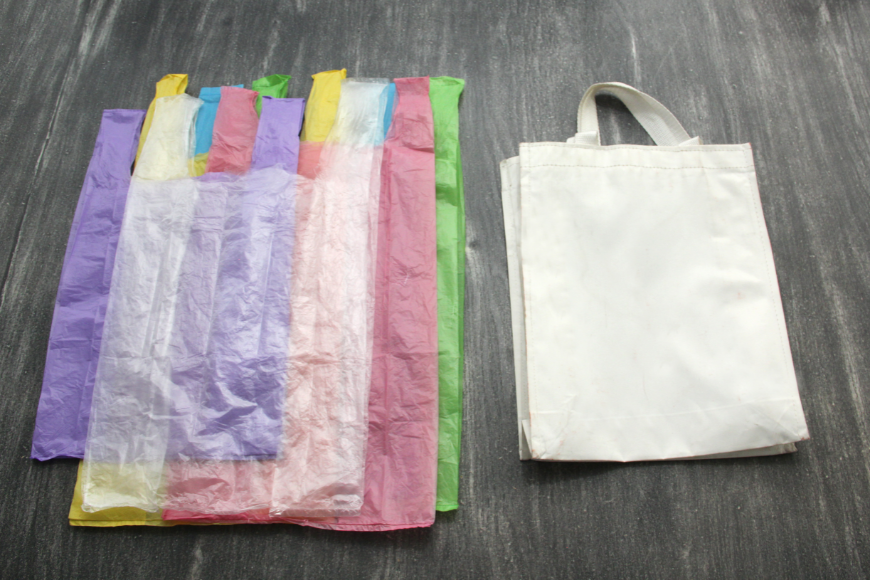
Promote the conservation and sustainable use of the world’s oceans, seas, and marine resources
This goal emphasizes the critical need to protect and restore the health and productivity of the world’s oceans and marine ecosystems. Achieving this goal is not only essential for the well-being of marine life but also for the livelihoods and food security of billions of people who depend on the oceans for their sustenance and economic well-being. It also recognizes the interconnectedness of marine ecosystems with broader sustainability efforts, including climate change mitigation and the protection of terrestrial ecosystems.
The University of Tulsa aims to contribute to SDG 14 in several ways, even though it is located inland and may not directly impact oceans and marine ecosystems. Here are some ways TU supports Sustainable Development Goal 14:
- Research and Education: Engage in research and educational initiatives related to marine conservation, oceanography, and aquatic sciences, even if it doesn’t have direct access to marine environments. Faculty and students can study and raise awareness about ocean-related issues and promote sustainable practices.
- Sustainable Practices: Implement sustainable campus practices, including water conservation, that emphasize responsible water usage and reduce the impact of water consumption on aquatic ecosystems.
- Student Engagement: Encourage student-led initiatives, clubs, and organizations focused on marine conservation and ocean protection, providing opportunities for engagement and advocacy.


- Awareness Campaigns: Raise awareness among students and the campus community about the importance of ocean conservation, sustainable fishing practices, and the consequences of marine pollution through educational programs and events.
- Global Environmental Initiatives: Support and participate in global environmental initiatives, such as World Oceans Day, World Water Day, and Earth Day.
- Research Funding: Seek research funding opportunities related to marine and aquatic sciences, enabling faculty and students to contribute to scientific knowledge and conservation efforts.
- Plastic Reduction: Implement initiatives to reduce plastic waste on campus, particularly single-use plastics, which are a significant contributor to marine pollution.
- Sustainable Development Awareness: Incorporate discussions about the interconnectedness of sustainable development goals, including SDG 14, into relevant courses and programs to emphasize the importance of a holistic approach to global challenges.
While TU may not have direct access to marine environments, its contribution to SDG 14 lies in its ability to educate and raise awareness about ocean conservation, foster research and innovation in related fields, and promote responsible practices among its students, faculty, and staff. By instilling a sense of responsibility for the oceans and aquatic ecosystems, TU indirectly contributes to the global effort to protect and sustain life below water.

SDG 14 Targets
Support and organize events aimed at promoting conservation and sustainable use of land
Implement policies to ensure the conservation, restoration, and sustainable use of land ecosystems associated with the university
Offer educational programs and outreach on sustainable management of land for agriculture and tourism.
Research
5+
Total Scholars
60
Total Publications
News
- Dear UTulsa community, As we begin a vibrant fall semester, I am pleased to share several pieces of good news about the department’s faculty. Associate Professor Laura Ford has been […]
- UTulsa is researching blending hydrogen into natural gas pipelines to reduce carbon emissions by replacing a portion of the methane in the gas with hydrogen, which produces no carbon dioxide […]
- University of Tulsa mechanical engineering alumnus Tim Latimer (BS ’12) was dealing with drilling equipment that kept breaking from the high temperatures deep underground. “I had never even heard of […]
- Growing up in New Mexico where her family operates an oil and gas business, Ileana Braddock was surrounded by people whose livelihoods were impacted by the booms and busts of […]
- On June 26, The University of Tulsa (UTulsa) welcomed six representatives from China University of Petroleum (CUP)-Beijing to its campus led by Vice President Guangqing Zhang. The visit marked a […]
- Eleven students from The University of Tulsa are participating in the Future Green Energy Leaders Summer Program hosted by China University of Petroleum, Beijing (CUPB). This is the first time […]
- The University of Tulsa’s (UTulsa) Mohan Kelkar, Ph.D., Chair of Petroleum Engineering, recently traveled to the Bahrain Centre for Strategic, International and Energy Studies to speak on energy transition. The […]
- The energy needs of individuals, communities, and the state invoke not only the demands on common resources, but also the environmental health of our communities. On March 27-28, The University […]
- University of Tulsa students enrolled in Seminar in Energy Management traveled to Aberdeen, Scotland, in May to see how one of the world’s energy hubs is maintaining its position as […]
- Nagu Daraboina, associate professor of chemical engineering at The University of Tulsa, received the Donald W. Davidson Award at the 10th International Conference on Gas Hydrates held in Singapore this […]